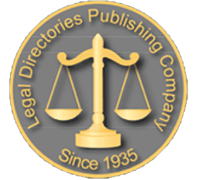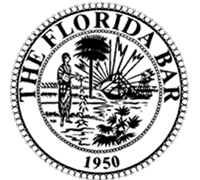What Constitutes Business Fraud? 5 Key Elements
That sinking feeling in your gut when a business deal feels off is a powerful signal. You might sense that you’re not getting the whole story or that promises are being made with no intention of being kept. While your intuition is a valuable tool, turning that suspicion into a legal action requires more than just a feeling. It requires concrete evidence that aligns with specific legal standards. The critical question becomes, does this situation meet the legal test for fraud? This guide is designed to bridge that gap between intuition and action by explaining exactly what constitutes business fraud, helping you assess your situation with clarity and confidence.
Key Takeaways
- Fraud is About Intent, Not Just a Mistake: A business deal gone wrong isn’t automatically fraud. The critical difference is proving the other party knew they were lying and did so intentionally to trick you into a decision that caused you financial harm.
- Proving Fraud Requires Five Specific Elements: To build a successful legal claim, you must demonstrate five distinct points: a false statement, the person’s knowledge that it was false, their intent to deceive, your justifiable reliance on their lie, and a resulting financial loss.
- Prevention is Your Best Strategy: The most effective way to deal with fraud is to stop it from happening in the first place. Implement practical safeguards like separating financial duties, training your team to spot warning signs, and conducting regular audits to protect your business from the inside out.
What is Business Fraud?
When you’re running a business, you expect others to operate with honesty and integrity. Unfortunately, that’s not always the case. Business fraud is a serious issue that can cost you time, money, and peace of mind. It happens when one party in a business deal intentionally uses deception, misrepresentation, or dishonest tactics to gain an unfair advantage. This isn’t just about a deal going sour; it’s about a deliberate act of deceit that causes financial harm. Understanding what constitutes fraud is the first step in protecting yourself and your business.
What “Business Fraud” Actually Means
At its core, business fraud is about intentional deception for financial or personal gain. It can show up in many forms, from a partner misrepresenting company profits to a vendor providing false information about their products. Think of it as any dishonest action taken to trick someone in a business context. This could include false advertising, creating fake invoices, or even breaching a contract in a deliberately misleading way. If you’ve entered into an agreement based on information you later discovered was a lie, you may be dealing with a case of business litigation. The goal is always to gain an unfair advantage through deceit, leaving the other party at a loss.
The Key Ingredient: Intent to Deceive
What separates a simple mistake or a broken promise from fraud is intent. For an act to be considered fraudulent, the person must have known their statement was false and made it with the specific purpose of tricking you. Proving fraud generally requires showing that someone knowingly made a false statement, you reasonably relied on that statement, and you suffered a financial loss as a direct result. An honest error isn’t fraud; a calculated lie is. This element of intentional deceit is the critical piece that turns a business dispute into a potential fraud claim. Without proof of intent, a case might be seen as a breach of contract instead.
Is It Fraud or Just a Disagreement?
Not every business deal that falls through is a case of fraud. Sometimes, partners simply disagree, or circumstances change, leading to a breach of contract. The key difference lies in the deception. A breach of contract happens when someone fails to fulfill their side of a deal. Fraud, on the other hand, involves a deliberate lie or trick used to get you to agree to the deal in the first place. For example, if a supplier fails to deliver goods on time, it’s a breach. If they never had the goods and took your money knowing they couldn’t deliver, that’s fraud. The line can feel blurry, which is why it’s helpful to discuss your situation with experienced business attorneys.
Clearing Up Common Myths About Business Fraud
One common myth is that fraud only happens in large corporations. The truth is, business fraud can occur in companies of any size, from a small local shop to a multinational corporation. It can be committed by an individual employee, a business partner, or the company itself. Another misconception is that fraud is always about outright theft. In reality, corporate fraud can be much more subtle, involving things like hiding liabilities or inflating assets to secure an investment. Because it’s often designed to be hard to spot, it pays to be vigilant and aware of the warning signs in all your business dealings.
Recognizing the Types of Business Fraud
Business fraud isn’t a single action but a category of illegal and deceptive practices. It can be orchestrated by employees, executives, or even outside parties. Understanding the different forms it can take is the first step toward protecting your company, your investments, and your reputation. From manipulated financial reports to outright theft, each type of fraud carries its own red flags and requires a specific approach to address. Knowing what to look for can help you spot trouble before it causes irreversible damage.
Financial Statement Fraud
This is when a company intentionally misrepresents its financial health. Think of it as lying on a corporate scale. Executives might inflate revenues, hide debts, or fail to disclose significant losses to make the company appear more profitable than it is. This is often done to secure loans, attract investors, or boost stock prices. While it happens inside the company, its impact is felt by everyone who relies on those financial statements to be true, from shareholders to lenders. Handling these complex situations often requires experienced business litigation attorneys to uncover the truth.
Employee Fraud and Embezzlement
One of the most common threats to a business comes from within. Employee fraud, also known as asset misappropriation, involves an employee stealing company assets. This can be as simple as taking cash from the register or as complex as creating fake invoices for a shell company they control. Other examples include padding expense reports or creating “ghost” employees to collect extra paychecks. Because it can be hard to track, this type of fraud can go unnoticed for years, slowly draining a company’s resources and damaging morale.
Consumer and Advertising Fraud
This type of fraud targets the public. It happens when a business uses deceptive, false, or misleading statements in its advertising to trick customers into buying a product or service. This could be anything from a “bait-and-switch” scheme where a different, more expensive product is pushed on the customer, to making false claims about what a product can do. It erodes consumer trust not just in one company, but in the market as a whole. Businesses that engage in these practices can face serious legal consequences and damage their brand beyond repair.
Investment and Securities Fraud
Investment fraud involves deceiving investors or manipulating financial markets. This can take many forms, such as a Ponzi scheme where money from new investors is used to pay off earlier ones, or a broker providing false information to convince someone to buy a worthless stock. It also includes insider trading, where someone uses confidential information to make a profit. These actions undermine the integrity of our financial systems and can lead to devastating losses for unsuspecting investors. Proving this type of fraud requires a deep understanding of securities law and the ability to trace complex financial transactions.
Tax Evasion and Fraud
There’s a clear line between legally minimizing your tax burden (tax avoidance) and illegally hiding from it (tax evasion). Tax fraud involves intentionally deceiving the IRS or a state tax authority to avoid paying what you owe. This can include underreporting income, claiming deductions you’re not entitled to, or hiding money in offshore accounts. The government takes tax fraud very seriously, and the consequences can include hefty fines, back payments with interest, and even prison time. If you suspect fraudulent activity within your business or in a company you’ve partnered with, it’s critical to contact an attorney to understand your options.
The 5 Elements of a Business Fraud Claim
Proving business fraud is more than just having a gut feeling that you’ve been wronged. In Florida, a successful fraud claim requires you to demonstrate five specific elements. Think of them as the essential ingredients in a recipe—if even one is missing, you don’t have a legal case for fraud. Understanding these components is the first step toward protecting your rights and seeking a resolution. If you believe you’ve been a victim, it’s important to see how the facts of your situation line up with these legal standards.
A False Statement Was Made
The foundation of any fraud claim is a false statement. This isn’t about a difference of opinion or a prediction that didn’t pan out; it has to be a misrepresentation of a material fact. A material fact is a piece of information that a reasonable person would consider important in making a decision. For example, if a business partner shows you falsified financial reports to make the company look more profitable than it is, that’s a false statement. Similarly, in a real estate transaction, a seller claiming a roof is brand new when they know it’s 15 years old and leaking is also a clear misrepresentation of a material fact.
The Person Knew It Was False
This element is all about intent. To prove fraud, you must show that the person who made the false statement knew it was untrue or acted with a reckless disregard for the truth. An honest mistake or a simple error in judgment typically doesn’t qualify as fraud. The key is demonstrating that the other party was not just wrong, but that they were deceptive. For instance, if an executive knowingly inflates sales numbers in a report to secure a loan, they are fully aware the statement is false. This knowledge of falsehood is a critical piece that separates a simple business dispute from a case of outright fraud.
They Intended to Deceive You
Beyond knowing the statement was false, the person must have made it with the specific intention of tricking you. Their goal was to mislead you into acting in a way you otherwise wouldn’t have. This element, known as “intent to induce reliance,” is central to any business law and litigation case involving fraud. For example, if a contractor intentionally uses cheaper, substandard materials while billing you for premium ones, their intent is to deceive you into paying a higher price. Proving this intent can be challenging, but it’s often established by examining the circumstances and the person’s actions.
You Relied on the False Statement
The false statement must have directly influenced your decision-making. You have to show that you reasonably relied on the misinformation and that it was a significant factor in your choice to enter into a contract, make an investment, or take some other action. If you knew the statement was false but went ahead with the deal anyway, you can’t claim you relied on it. Your reliance must also be justifiable. For instance, it’s reasonable to rely on an official appraisal during a real estate transaction, but it might not be reasonable to rely on a verbal promise that sounds too good to be true without getting it in writing.
You Suffered a Loss as a Result
Finally, you must prove that you suffered actual damages because of your reliance on the false statement. This means you experienced a tangible loss, most often a financial one. If someone lied to you but you didn’t lose any money or suffer any harm, there is no basis for a fraud claim. The damages must be a direct result of the fraudulent act. For example, if you invested in a company based on fabricated profit reports and the company’s stock subsequently became worthless, your financial loss is a direct consequence of the fraud. Documenting this harm is essential for recovering your losses.
Facing the Consequences of Business Fraud
When business fraud occurs, the impact extends far beyond a single dishonest transaction. The consequences can create a ripple effect, touching every part of a business and the lives of the people involved. For the person or company committing the fraud, the fallout can be severe, involving everything from hefty fines to potential jail time. For the victim, the path to recovery can be long and challenging, often requiring legal action to reclaim what was lost.
The repercussions aren’t just financial. Fraud can trigger intense government scrutiny, leading to lengthy and stressful investigations. It can also permanently tarnish a company’s reputation, eroding the trust of customers, partners, and employees that may have taken years to build. Understanding the full scope of these consequences is the first step in either protecting your business from fraud or taking the right steps after you’ve been victimized. The legal system has specific remedies and penalties in place, and working with an experienced business litigation attorney is essential to address the situation effectively.
Civil Penalties and Financial Damages
On the civil side, business fraud is a type of “business tort,” which means it’s a wrongful act that causes harm to another person’s business, for which the law provides a remedy. If you’ve been a victim of fraud, you can file a lawsuit to recover your losses. To win your case, you generally need to prove that someone knowingly made a false statement, you reasonably relied on that statement, and you suffered a financial loss as a direct result. If you are successful, a court can order the fraudulent party to pay damages, which could include the money you lost and, in some cases, punitive damages designed to punish the wrongdoer.
Criminal Charges and Jail Time
Beyond a civil lawsuit, many forms of business fraud are also crimes. This means the state or federal government can press charges against the person responsible. If convicted, the penalties are much more severe than just paying back money. They can include substantial fines that go to the government, not the victim, and even prison time. The possibility of a criminal record and incarceration raises the stakes significantly. Whether an act of fraud is treated as a civil matter, a criminal one, or both often depends on the scale of the fraud and the specific laws that were broken.
Government Oversight and Investigations
Certain types of fraud can attract the attention of government agencies. For example, financial or investment fraud might trigger an investigation by the Securities and Exchange Commission (SEC), while tax fraud will certainly involve the IRS. In Florida, the Attorney General’s office may also investigate cases of widespread consumer fraud. These investigations are incredibly thorough and can be disruptive to your business operations. Responding to subpoenas, providing documentation, and sitting for interviews can be a massive drain on your time and resources. Having skilled legal counsel is critical to properly respond to any government inquiry.
Damage to Your Business and Reputation
Perhaps one of the most lasting consequences of business fraud is the damage it does to a company’s reputation. Trust is the foundation of business, and once it’s broken, it’s incredibly difficult to repair. A fraud scandal can drive away customers, scare off investors, and make it impossible to secure loans or lines of credit. Internally, it can destroy employee morale and lead to a toxic work environment. This reputational harm often outlasts any legal penalties and can ultimately be the downfall of an otherwise successful enterprise. Rebuilding that trust is a long and uphill battle.
How to Prevent and Detect Fraud in Your Business
While knowing how to handle fraud is important, the best strategy is to stop it before it starts. Taking proactive steps to protect your company can save you from significant financial loss, legal battles, and damage to your reputation. Building a secure business environment isn’t about creating a culture of distrust; it’s about putting smart, simple systems in place that protect everyone involved—your business, your employees, and your customers.
Think of these measures as the foundation of a healthy business. By implementing clear controls, educating your team, and using the right tools, you can create a framework that makes it much harder for fraudulent activities to occur. These preventative steps are some of the most valuable investments you can make in your company’s long-term success and stability. Let’s walk through some of the most effective ways to safeguard your business.
Implement Strong Internal Controls
One of the most effective ways to prevent fraud is to establish strong internal controls. This simply means creating a system of “checks and balances” so that no single person has complete control over financial transactions. For example, the employee who approves invoices should not be the same person who cuts the checks. By separating these duties, you make it significantly more difficult for one individual to manipulate the books.
Start by documenting clear, straightforward policies for handling cash, processing payments, and managing inventory. Restrict access to financial accounts and sensitive data to only those who absolutely need it for their roles. These controls create a transparent environment where discrepancies are easier to spot, acting as a powerful deterrent from the outset. Establishing these practices early is a key part of corporate formation.
Train Your Team to Spot Red Flags
Your employees are your first line of defense against fraud. That’s why it’s so important to teach your team how to recognize and report suspicious behavior. Red flags can include anything from unusual transactions and missing documents to an employee who is overly protective of their work or suddenly seems to be living a lifestyle well beyond their means.
Create a culture where employees feel safe and encouraged to voice concerns without fear of retaliation. Establish a clear, confidential process for reporting potential issues. When your entire team understands what to look for and knows they have a responsibility to protect the company, you build a collective shield against internal and external threats. This vigilance is a shared responsibility that strengthens the entire organization.
Use Technology to Your Advantage
In our connected world, technology can be both a vulnerability and a powerful defense. Using technology to your advantage is key to a modern fraud prevention strategy. Simple tools like firewalls, data encryption, and secure password policies are fundamental for protecting sensitive information. You can also use accounting software that automatically flags unusual transactions or deviations from normal spending patterns.
These technological safeguards work around the clock to monitor your systems for suspicious activity. By automating parts of your fraud detection process, you can catch potential issues much faster than you could with manual reviews alone. It’s a smart way to add another layer of security to your business operations without creating extra work for your team.
Conduct Regular Audits
Regularly reviewing your financial records is non-negotiable. You don’t have to wait for a problem to arise to take a closer look at your books. Conducting both scheduled and surprise audits of your accounts, inventory, and payroll can uncover irregularities and deter anyone who might consider exploiting a weakness in your system. These reviews can be done internally or by an external accountant for an unbiased perspective.
An audit doesn’t have to be an overwhelming process. It can be as simple as a manager periodically reviewing expense reports or a business owner cross-referencing bank statements with accounting records. The goal is to create accountability and demonstrate that you are paying close attention. Consistent oversight sends a clear message that fraudulent activity will not go unnoticed.
Know When to Call an Attorney
If you suspect fraud, your first instinct might be to confront the person or launch your own investigation. However, this can often do more harm than good, potentially tipping off the individual and giving them a chance to destroy evidence. Instead, the moment you have a credible suspicion, it’s time to contact a legal professional.
An experienced business litigation attorney can guide you through the proper steps to investigate the claim without compromising your legal position. They can help you preserve evidence, understand your options for recovery, and determine the best course of action. Knowing how to properly prove a fraud claim is critical, and having an expert on your side ensures you handle the situation correctly from the start. If you need guidance, don’t hesitate to contact our team for help.
Related Articles
- Top Orlando Business Litigation Lawyers for 2022
- Business Attorney Orlando: Legal Counsel PA
- Business Law Lawyers: Top Guide for Entrepreneurs 2024
- When to Hire a Business Litigation Attorney
Frequently Asked Questions
What’s the first thing I should do if I suspect fraud in my business? Before you do anything else, resist the urge to confront the person you suspect. This can give them a chance to cover their tracks or destroy evidence. Instead, quietly gather any documents or records related to your suspicion—emails, invoices, financial statements—and contact a business litigation attorney. A lawyer can help you understand your rights and create a strategy to investigate the matter properly without compromising your ability to take legal action later.
Is it still fraud if someone just left out important details instead of telling an outright lie? Yes, it certainly can be. Fraud isn’t limited to making a false statement; it can also involve the intentional concealment of a critical fact. If someone knowingly hides information that would have caused you to make a different decision, and they did it to deceive you for their own gain, it can still meet the legal standard for fraud. The core issue is the deliberate deception that led to your financial harm.
My business partner and I had a deal go bad. How do I know if it was fraud or just a breach of contract? This is a common and important distinction. The main difference comes down to intent. A breach of contract happens when one party fails to follow through on their promises in an agreement. Fraud, however, involves a deliberate act of deception from the start. Ask yourself: Did they lie or hide a crucial fact to get me to agree to the deal in the first place? If the deal was based on a lie, it leans toward fraud. If they entered the deal in good faith but later couldn’t hold up their end, it’s more likely a breach.
Can I handle a fraud investigation on my own to save money? While it might seem like a way to cut costs, trying to investigate fraud yourself is incredibly risky. You could accidentally destroy evidence, violate someone’s privacy rights, or alert the person involved, making it much harder to prove your case. Working with an experienced attorney ensures that the investigation is handled correctly and that all evidence is preserved in a way that will be admissible in court. It’s a crucial step in protecting your interests.
What kind of damages can I actually recover in a business fraud lawsuit? If your fraud claim is successful, you can typically sue to recover the direct financial losses you suffered as a result of the deception. The goal is to be made “whole” again, as if the fraud never happened. In some cases where the fraudulent behavior was particularly outrageous, a court may also award punitive damages. These are intended not just to compensate you, but to punish the wrongdoer and deter others from similar conduct.

















